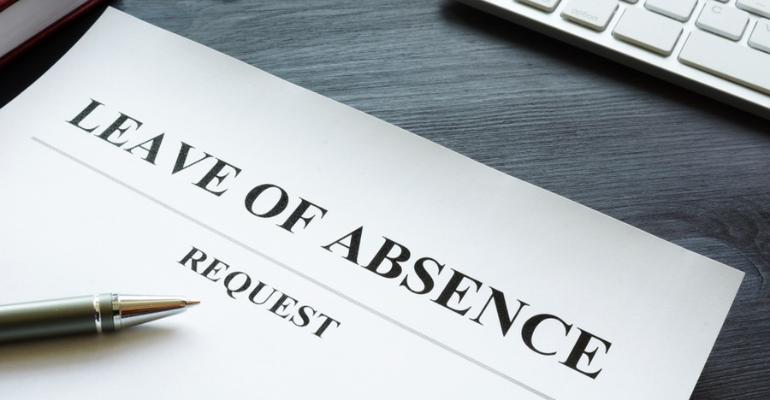
Can You Be Fired if FMLA Is Denied?

Life happens. When a personal or family emergency arises, you understandably must put aside work obligations to care for yourself or your loved ones. The Family Medical Leave Act (FMLA) guarantees covered employees up to 12 weeks of unpaid leave each year from their jobs to care for various medical and familial obligations.
However, employees who take prolonged leaves of absence for any reason can cause disruptions and difficulties for their employers. Some employers might resist granting leave under the FMLA. They might terminate the employee who requested leave to dissuade others from making similar requests.
You might ask, “Can you be fired if FMLA is denied?” The answer is a clear no if you are being terminated in retaliation for asking for FMLA leave. However, it does not mean your employer can never terminate you if you ask for leave protected by the FMLA. Knowing the circumstances under which you can be terminated and when you should seek legal counsel is helpful.
What Is FMLA?
The Family Medical Leave Act is a federal law that provides covered employees up to 12 weeks of unpaid leave each year for qualifying reasons. You can use FMLA leave for a variety of purposes, including:
- Your own serious health condition;
- To care for a child, spouse, or parent who has a serious health condition;
- Birth of your child and post-delivery bonding;
- Pregnancy; and
- Adopting a child or having a foster child placed with you
While on FMLA leave, your employer generally cannot fire or demote you because you are taking FMLA leave. You are eligible for all regularly scheduled pay increases you would have otherwise received, and your health insurance coverage continues.
When your leave is up and you return to work, your employer must reinstate you at your previous position. If they cannot, they must place you in a position comparable to the job you held before taking FMLA leave.
Reasons for FMLA Denial
There are several reasons why your employer might deny a request for FMLA.
FMLA Does Not Cover Either You or Your Employer
Employers are not required to offer employees FMLA leave if fewer than 50 employees work within a 75-mile radius of the worksite.
For example, suppose your employer has 25 employees at its headquarters in Tampa and another 25 at a warehouse near Houston, Texas. In this case, your employer is not subject to FMLA and can lawfully deny your request.
Not only must your employer be subject to FMLA, but you must also qualify for FMLA leave, or they can deny your request. You are not eligible for FMLA leave unless you have worked for your employer for a minimum of 12 months and worked a minimum of 1,250 hours during the 12-month period before leave starts.
You Do Not Request FMLA Leave Correctly
Where the reason for FMLA leave is known to you well in advance, such as a pregnancy or adoption, your employer is generally entitled to at least 30 days’ notice before you start your FMLA leave period.
Can You Be Terminated After FMLA Denial?

Your employer cannot retaliate against you for requesting FMLA leave. Retaliation encompasses a wide variety of employment-related actions, including termination. However, your employer might also retaliate against you for requesting FMLA by, for example, reducing your hours or pay or demoting you.
However, just because you are terminated shortly after your FMLA request is denied does not mean your employer has retaliated against you. If your position would have been scheduled to be eliminated due to downsizing, then your employer’s actions are lawful and not retaliatory.
Similarly, you can be lawfully terminated after requesting FMLA if you violate your company’s policies. Suppose your company’s policies allow you to be terminated for missing three days of work if you do not show up for work and do not call to report your absence. You can be terminated if you violate this policy, even if your termination comes after your FMLA request was denied.
Can I Be Fired While on Intermittent FMLA?
Just because you are entitled to up to 12 weeks of FMLA leave does not mean you must take all 12 weeks simultaneously. Under certain circumstances, you may elect to take intermittent FMLA leave, allowing you to take periods of time off that add up to 12 weeks annually.
Employees who wonder, “Can I be fired while on intermittent FMLA?” need not worry unnecessarily. The same limitations and protections apply to intermittent FMLA, which means your employer cannot terminate you for requesting intermittent FMLA leave.
Preparing for FMLA: Steps to Ensure Compliance
If you anticipate needing to ask for leave under FMLA, taking simple steps can help the process go smoother. Review your company’s employee manual and ascertain your employer’s policy for FMLA requests. Ensure you know the person to whom your FMLA request should be made; making an FMLA request to the wrong manager can delay the processing of your request and lead to confusion.
Your company’s policies will also tell you whether you are required to use paid leave while on FMLA leave. For example, some employers require that you use any paid vacation or sick time you have concurrently with your FMLA leave. Such policies are legitimate, and knowing about them in advance will help prevent a surprise later.
When approaching your employer and requesting FMLA leave, be as specific as possible. Make this request in writing so there is a paper trail, and keep any correspondence you receive about your request. Provide the reason you need FMLA and the dates you will be out of work. Your employer is entitled to ask for documentation establishing you are requesting FMLA leave for a valid purpose, but you are not legally required to sign a release of medical information.
What to Do if You Are Fired Post FMLA Denial

If a lawful reason supports your termination, you may not have any recourse. However, if your employer terminated you in retaliation for requesting FMLA leave, you likely have legal options.
These options include filing a complaint with the Department of Labor, which can investigate your claim and take certain actions against your employer. You could also take legal action and file a civil suit against your employer with the help of an experienced Florida employment law attorney. If you successfully show your employer retaliated against you for requesting FMLA leave, you could be entitled to damages, including back pay.
To prevail in a lawsuit, you must show that you were terminated because you requested FMLA leave.
You and your lawyer must collect evidence establishing this connection for the court:
- Your company’s policies regarding FMLA leave;
- Your written FMLA request and any responses you obtained to that request;
- Your employer’s practices in granting or denying FMLA leave with other employees;
- Your employee file and performance reviews; and
- The reason given by your employer for your termination.
It is best to speak with an attorney and retain their services quickly following your termination. Some evidence is irreplaceable and could become lost or destroyed over time.
Also, the memories of witnesses with information about your situation can fade. As a result, their memories should be preserved quickly through depositions arranged and conducted by your attorney.
How WFC Can Assist
With years of experience and many satisfied clients, Wenzel Fenton Cabassa is a smart choice for representation if you have been terminated after requesting FMLA. Our Florida FMLA attorneys represent employees and workers who have been unlawfully terminated, retaliated against or have had their rights violated in the workplace.
If you believe you were entitled to FMLA leave and had your employment terminated after asking for it, WFC wants to speak with you. Contact us and schedule a consultation.
Please Note: At the time this article was written, the information contained within it was current based on the prevailing law at the time. Laws and precedents are subject to change, so this information may not be up to date. Always speak with a law firm regarding any legal situation to get the most current information available.








